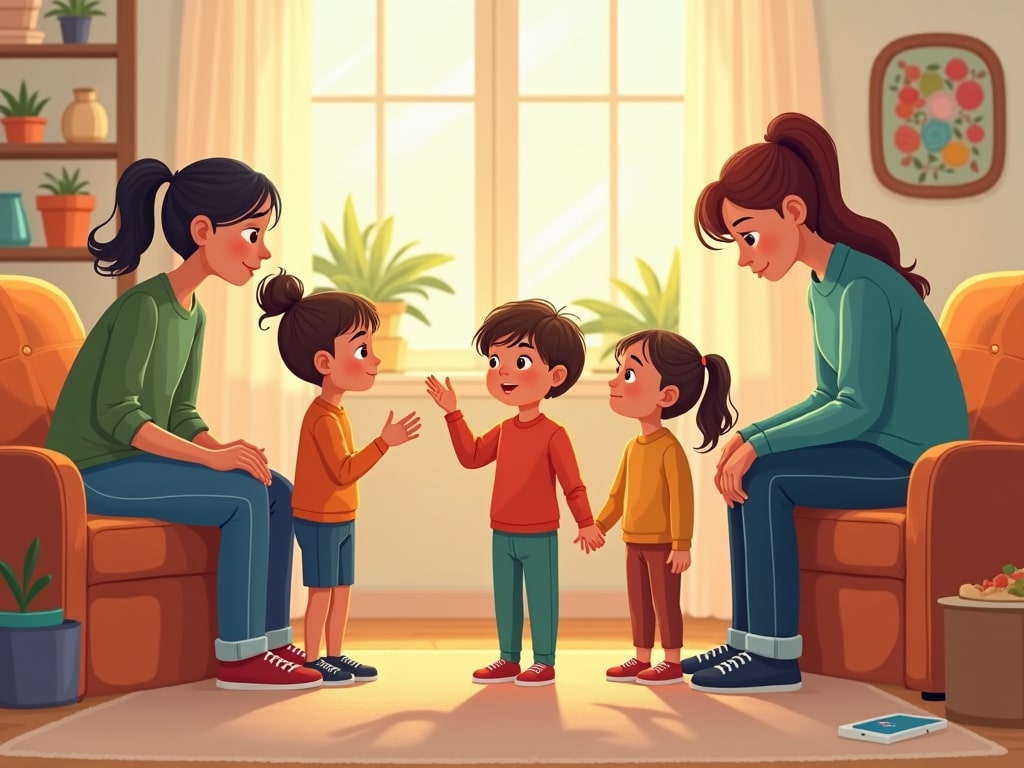
Critical Behaviors Children Learn from Observing Their Parents
As a parent, you are your child’s first and most influential role model. From the moment a child is born, they are constantly observing, absorbing, and imitating the behaviors and attitudes of their caregivers. This process, known as parental modeling, is a cornerstone of social learning and significantly influences a child’s emotional, social, and cognitive development. The lessons children learn from their parents’ actions often shape their values, habits, and personality for life. Let’s delve into the 10 critical behaviors children learn by observing their parents and how these learnings impact their future.
1. Emotional Regulation: Teaching Calmness and Resilience
One of the most vital behaviors children learn from their parents is how to manage emotions. Parents who demonstrate calmness in stressful situations teach their kids how to remain composed under pressure. By openly expressing emotions like sadness, happiness, or frustration in a healthy way, parents guide their children on how to process and communicate feelings effectively.
For instance, a parent who practices mindfulness or uses problem-solving strategies during disagreements helps their child learn to navigate similar challenges in their own lives. Alternatively, if a child witnesses frequent emotional outbursts, they may mimic this behavior, resulting in difficulty managing conflicts as they grow older.
Key Takeaway
Children who observe positive emotional regulation in their parents are more likely to develop resilience and self-control.
2. Social Skills: The Art of Interacting with Others
Children learn essential interpersonal skills simply by watching their parents’ social interactions. Whether parents greet neighbors with respect, communicate effectively with peers, or display empathy in conversations, children replicate these behaviors in their own relationships.
For example, if you openly show kindness and compassion to strangers or handle disputes civilly, your child internalizes these qualities. Conversely, modeling rude or dismissive behavior can hinder your child’s ability to build meaningful connections in the future.
Key Takeaway
Parents who model respectful communication and empathy foster the development of positive social skills in their children.
3. Work Ethic: Instilling Responsibility and Dedication
A strong work ethic is often learned at home. Parents who demonstrate responsibility, discipline, and a commitment to fulfilling their tasks—whether it’s completing household duties or excelling at work—instill these values in their children.
For example, involving children in chores and showing the importance of persistence in the face of challenges helps them develop a sense of accountability and pride in their work. Children who see their parents procrastinate or take shortcuts may adopt similar habits.
Key Takeaway
A child’s sense of responsibility and dedication is directly influenced by their parents’ approach to work and daily tasks.
4. Healthy Relationships: Setting a Standard for Love and Respect
The relationship between parents often becomes the blueprint for how their children perceive and approach romantic and platonic relationships. When parents treat each other with love, respect, and equal partnership, children internalize these qualities as integral to healthy relationships.
For instance, children witnessing acts of kindness, compromise, or constructive communication between their parents are more likely to seek and sustain positive relationships in adulthood. On the contrary, exposure to unhealthy dynamics like constant arguments or disrespect may lead them to replicate or tolerate toxic patterns.
Key Takeaway
Parental interactions teach children the fundamentals of trust, respect, and healthy communication in relationships.
5. Conflict Resolution: Managing Disputes Constructively
How parents handle disagreements profoundly affects their child’s approach to conflict resolution. Parents who settle disputes with respectful dialogue and problem-solving demonstrate constructive ways to resolve differences.
For example, calmly discussing solutions and avoiding unnecessary blame teaches children that disagreements can be navigated without hostility. Children who repeatedly witness aggressive or passive responses may struggle with handling conflicts maturely.
Key Takeaway
Parents serve as important role models for teaching children how to address conflicts peacefully and effectively.
6. Confidence and Self-Esteem: Building Inner Strength
Parents often shape their child’s self-esteem through their own attitudes and behaviors. A parent who celebrates effort, acknowledges growth, and fosters a supportive environment boosts their child’s confidence. Conversely, harsh criticism or unrealistic expectations can undermine a child’s self-worth.
For example, expressing pride in a child’s small achievements can create a solid foundation of self-confidence that empowers them to take on bigger challenges later in life.
Key Takeaway
A parent’s encouragement and constructive feedback significantly shape a child’s confidence and sense of self-worth.
7. Healthy Lifestyle Choices: Prioritizing Well-being
Children often adopt their parents’ habits when it comes to health and fitness. By modeling a healthy lifestyle, such as eating nutritious meals, staying active, and managing stress, parents instill lifelong habits in their children.
For instance, involving kids in family workouts or cooking healthy meals together fosters an appreciation for wellness. However, inconsistent routines or unhealthy habits may lead children to neglect their own well-being.
Key Takeaway
Parents who prioritize health and wellness set a foundation for their children to lead healthy, balanced lives.
8. Financial Responsibility: Money Management Skills
Financial habits are another crucial behavior children pick up from their parents. Parents who budget wisely, save regularly, and spend responsibly teach their kids the importance of managing finances.
For example, involving children in discussions about saving for goals or needs versus wants fosters financial literacy from a young age. Careless spending or financial secrecy, on the other hand, can encourage poor money management.
Key Takeaway
Modeling smart financial behavior helps children develop a lifelong skill of financial responsibility.
9. Problem-Solving: Creative and Critical Thinking
Parents who approach challenges with a positive mindset and analytical thinking pass these problem-solving skills onto their children. This helps children learn to tackle obstacles with creativity and confidence.
For example, if parents involve kids in solving everyday issues—like fixing a small appliance or planning a family outing—children gain valuable experience in critical thinking.
Key Takeaway
Teaching children problem-solving through observation encourages them to face challenges with confidence.
10. Values and Ethics: Building a Moral Foundation
Parents are the primary source of a child’s moral compass. They learn essential values—such as honesty, integrity, kindness, and responsibility—by observing how their parents make decisions and treat others.
For instance, a parent who keeps promises and acts ethically, even in tough situations, teaches their child the value of principles over convenience.
Key Takeaway
Parental actions and decisions are crucial in shaping a child’s ethical and moral beliefs.
Why Parental Modeling Matters
Through parental modeling, children develop most of their core traits and behaviors. As parents, being mindful of your actions and striving to set a positive example can help your child become a socially adept, emotionally intelligent, and responsible individual.
FAQs
1. How do children learn behaviors from their parents?
Children observe and imitate their parents’ actions, attitudes, and responses, a process known as parental modeling.
2. What if parents unintentionally model negative behaviors?
Parents can rectify negative behaviors by acknowledging them, apologizing, and actively demonstrating healthier alternatives moving forward.
3. Can external influences outweigh parental modeling?
While external influences like peers and media play a role, the behaviors modeled by parents are typically the most impactful during a child’s formative years.




